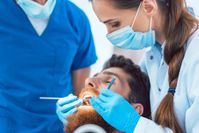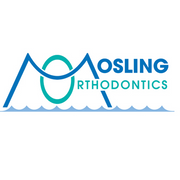
Many people visit an oral surgeon after learning they have impacted teeth. This dental issue is common. Below is more information about the condition to help you understand how it happens and the treatment options.
What Are They?
Impacted teeth are most often still covered by the bone, but can also be impacted in the soft tissue. These teeth are unable to erupt on the own. Impacted teeth are diagnosed with an X-ray or cone beam scan. The most common tooth to be impacted are the wisdom teeth or third molar, but this issue may involve other teeth, too.
What Are Their Risks?
 Many impacted teeth don’t have symptoms. However, your gums may feel painful, bleed, or swell around the tooth as it tries to break through the gum tissue.
Many impacted teeth don’t have symptoms. However, your gums may feel painful, bleed, or swell around the tooth as it tries to break through the gum tissue.
Partially impacted teeth can also decay if they trap bacteria between the teeth and gums. This issue may cause bad breath and contribute to a painful infection that can worsen and become inflammatory gum disease.
Finally, impacted teeth can damage other teeth as they fight for space in the mouth. This issue requires orthodontic treatment along with the skills of the oral surgeon, to remove the tooth and straighten the teeth surrounding it.
How Do Dentists Treat Them?
Dentists and orthodontists alike often refer impacted teeth to oral surgeons who will surgically remove the teeth or in the case of an impacted canine, attach a chain to the tooth for the orthodontist to gentle guide into place.
If you need an appointment with an oral surgeon and are unsure of which one to contact, Mosling Orthodontics in La Crosse, can refer you to one in your area. Dr. Mosling has over 20 years of experience, offering residents exceptional care from their initial consultations through years of teeth straightening. Call (608) 782-1950 or visit the website for more information on the practice’s services.
About the Business
Have a question? Ask the experts!
Send your question

